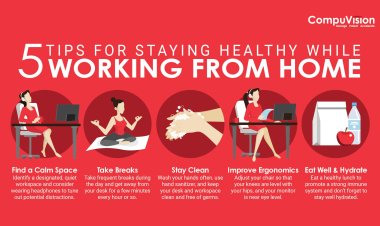PATIENT HAPPINESS FROM HOME CARE
ASSISTED LIVING OR NURSING HOME

When choosing where an aging loved one should live, you have to consider health care needs, finances, and preferences.
But happiness can also weight heavily in your decision. Nearly 25% of adults aged 65 and older are socially isolated, according to the Centers for Disease Control.
Research also shows that elderly people report unhappiness when then are confronted with social isolation, depression, and disability.
This article will weigh the pros and cons of home care, assisted living, and nursing homes. We’ll also discuss how they can each affect patient happiness.
TALK TO YOUR LOVED ONE
It’s important to talk to your loved one before you make any decisions on where they should live. Find out what daily activities they enjoy and what they want their life to look like for them to be their happiest.
In many cases, their ideal living situation may not be feasible. Talking to your loved one and understanding their concerns will make them feel like they still have some control over their life.
They will likely feel much happier if they felt they had a part in the decision making process.
TAKE A LOOK AT YOUR OPTIONS
Now that you understand their preferences, you can take a look at your options based on the cost and types of services your loved one needs. Choosing a place to live should be a conversation done with your loved one’s involvement.
After you’ve mapped out the types of services they need, find a few places that meet those requirements, and talk it over with them. There may be disagreements at first, but talking will ensure you don’t end up paying for more services than are necessary.
As an example, you may see that your mom has been ordering more takeout food lately. She may want to look for a service that includes meal preparation.
Your mother may tell you she is simply tired of cooking for the family for so many years. Now she enjoys talking to the nice delivery boy who brings her a meal from the Italian restaurant up the street.
If you can work through the options together, you will probably get to the root of the issue. Then you can cut back on expenses that assisted living facilities charge that you don’t need.
PROS AND CONS OF ASSISTED LIVING
When your loved one resides at an assisted living facility, their living area is maintained by the staff. There is no need for your mom to do any housework or chores that could be dangerous for her health.
As we age, many aspects of personal care can also become difficult. If your loved one has difficulty getting dressed or needs someone to assist them in bathing, assisted living facilities can help with these tasks.
Medical professionals are at the facility round the clock to help with any problems that might arise. This means your loved one will receive constant care.
Like any choice we have to make, there are also some cons associated with assisted living facilities. According to AARP, an assisted living facility can cost tens of thousands of dollars a year.
You will also need to do careful research about the facility you choose. Over the years many nursing homes have developed bad reputations for providing poor care. Stores of abuse and neglect still abound and people are fearful of turning their loved ones over to a nursing home.
Do your research, read reviews, and check reports online. Make sure you are comfortable with the facility that you choose if you decide an assisted living facility is best for your family member.
PROS AND CONS OF IN-HOME CARE
One of the pros ofsenior home care is that seniors get to stay in their home. They can still live among their friends, family, and surroundings that make them feel happy and secure. They can also maintain a little bit of their freedom.
Often elderly people who have home care instead of senior care remain connected to their friends, church group, or other community associations. Research shows that these social connections help keep seniors happy and healthy.
Home health care can assist with light housework, meal preparation, driving, and bathing. This makes it easier for seniors to live in their homes.
In-home care can be someone who stops in a couple of days a week or someone who lives in the home 24/7. It all depends on your loved one’s needs.
In-home care will not have access to the same level of medical care that is given at an assisted living facility. It’s best to assess your loved one’s needs before deciding if home health care is the best solution for them.
Be honest with yourself about your mom or dad’s functioning ability. There are different levels of home care, so if mom begins to decline you can always step up the level of care she receives in-home.
IMPORTANT CONSIDERATIONS
There are a few other important considerations that should factor into your decision making too.How far away you live from mom or dad could play a role. It’s easier to evaluate facilities or check in on home health care workers when you live down the road.
If your loved one doesn’t currently have an active social life, moving them into an assisted living facility could give them a renewed sense of community and connectedness. This could ultimately have an impact on their overall health and happiness.
MAKE THE RIGHT CHOICE FOR YOUR LOVED ONE
It is tough and emotionally draining when you are trying to figure out where an aging loved one should live.
Making the choice together with your loved one will help you both proceed and feel better about your ultimate decision.
On Point Health Services provides compassionate home care in the comfort of your loved one’s home. If you are trying to figure out a place for mom or dad to live, contact On Point Health Services to discuss how we can meet your family’s needs.










